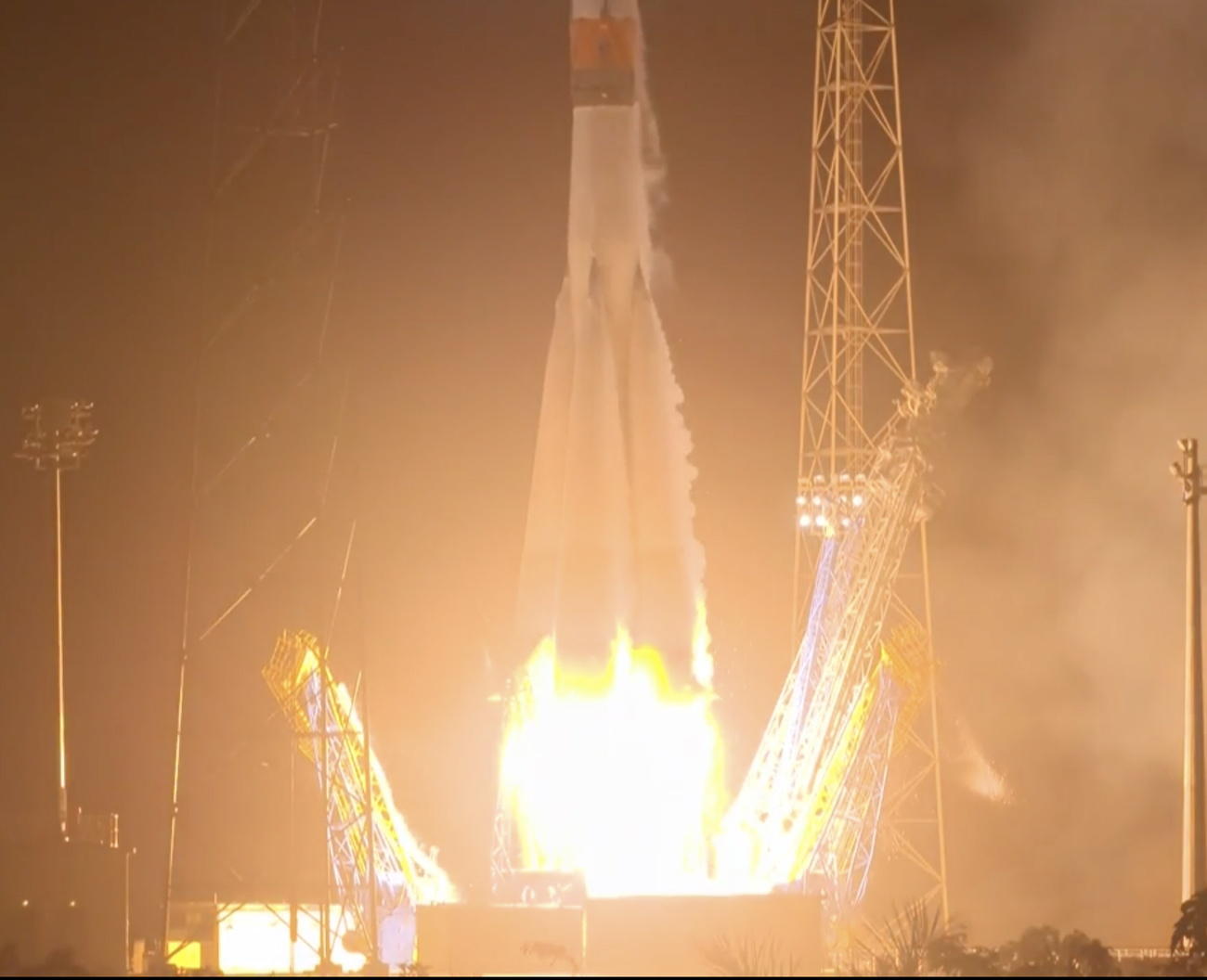
Swiss-developed exoplanet telescope launched into space

A space telescope designed by Swiss researchers to observe distant planets successfully launched on Wednesday, after a first attempt was delayed by 24 hours because of a software problem.
A Russian Soyuz rocket carrying the CHEOPS (Characterising ExOPlanets Satellite) telescope blasted off from Kourou, French Guiana at 05:54 local time (09:54 CET) for a joint European space mission. The satellite will separate from the rocket after roughly 145 minutes.
During the three-year mission, the CHEOPSExternal link satellite will study 100 of the more than 4,000 exoplanets – planets which exist outside the solar system –discovered so far. Astronomers are keen to find out more about their composition, information that may help them to better understand the origins of planet Earth and conditions for extraterrestrial life.
“We are one planetary system among many,” Didier Queloz, the Swiss Nobel Physics Prize winner who leads the CHEOPS science team, told the Associated Press. “It’s all about our place in the universe and trying to understand it.”
CHEOPS was developed by researchers at the University of Bern in collaboration with other Swiss firms, including Ruag Space and Thales Alenia, and the European Space Agency. It was initially scheduled to launch on the Soyuz rocket on Tuesday morning, but a software problem in the upper stage of the rocket just before lift-off led to a 24-hour delay.

More
The Swiss planet watcher
On Tuesday the International Astronomical Union also announced new names for about 110 exoplanets and their stars following a campaign to mark its 100th anniversary. Countries were allowed to propose names for a planet and its star. The Swiss population’s choice of the names “Eiger” and “Mönch” will be given to exoplanet “HD 130322 b” and its star, respectively – matching the constellation of Jungfrau in which the system is located.
In addition to the CHEOPS telescope, the Soyuz rocket also carried an Earth observation satellite for the Italian Space Agency, plus three other satellites developed by the French and the European Space Agency.

In compliance with the JTI standards
More: SWI swissinfo.ch certified by the Journalism Trust Initiative





























You can find an overview of ongoing debates with our journalists here . Please join us!
If you want to start a conversation about a topic raised in this article or want to report factual errors, email us at english@swissinfo.ch.